Neurodiversity Research Conference – Academic Presentations about Neurodiversity Research
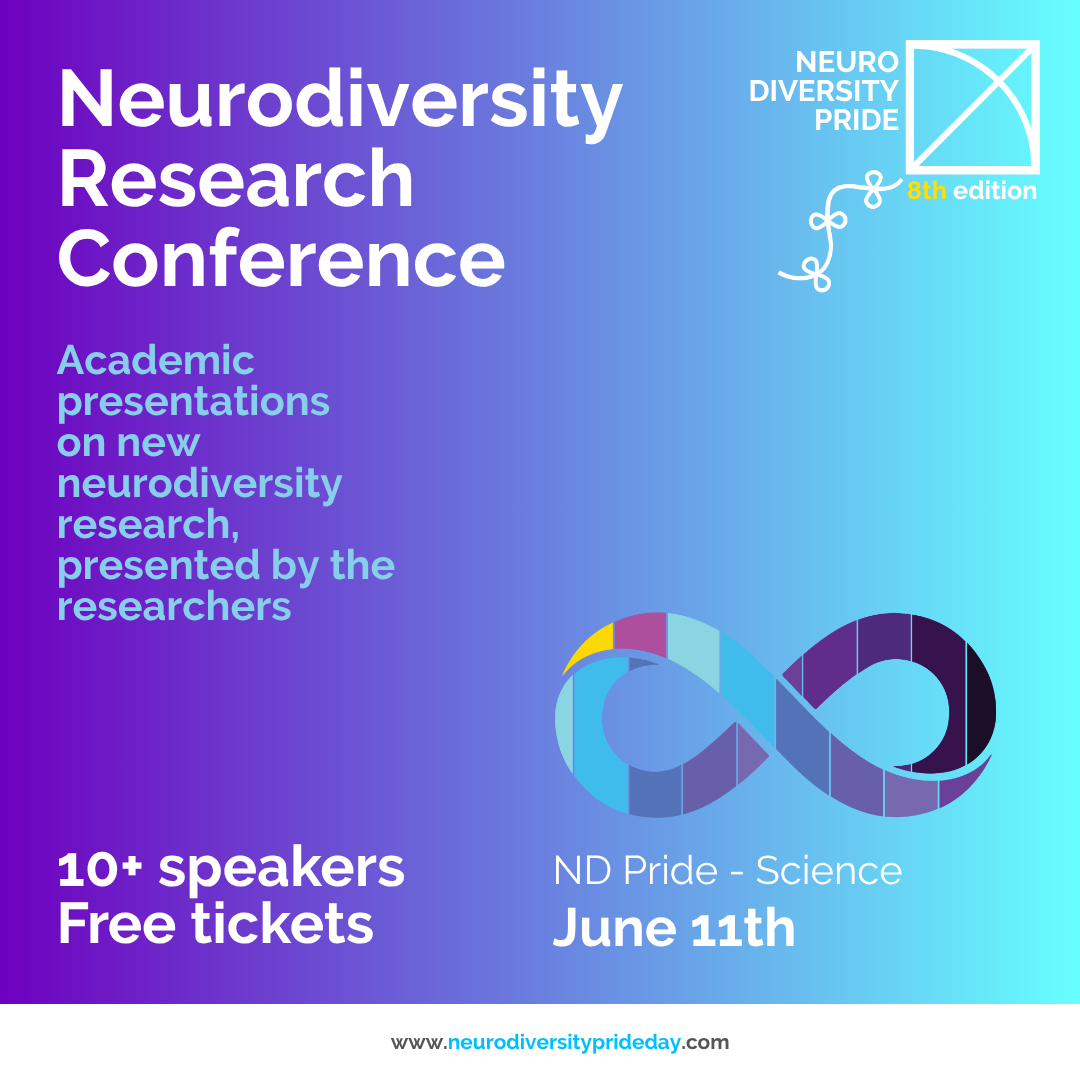
Neurodiversity Research Conference – Academic Presentations about Neurodiversity Research
On the 11th of June 2025, researchers who are doing research about neurodiversity will present and share about their works and their findings.
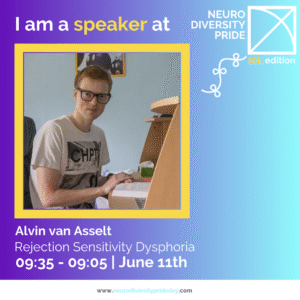
Alvin van Asselt: Rejection Sensitivity Dysphoria (RSD) Research
We are pleased to announce an upcoming Academic Presentation by Alvin van Asselt, an autistic PhD student whose research sheds light on Rejection Sensitivity Dysphoria (RSD)—a term increasingly used by neurodivergent communities to describe intense emotional responses to rejection, criticism, or exclusion.
Abstract:
Rejection Sensitivity Dysphoria. Being rejected, excluded, or criticised can be very distressing. For some individuals, these experiences may be even more intense than for others. On social media, neurodivergent individuals use the term Rejection Sensitivity Dysphoria (RSD) to describe that their responses to these events can be extreme. Alvin van Asselt, an autistic PhD student researching RSD in autism, will give a talk on what is currently known about RSD. This includes findings from his recent study, in which he interviewed autistic adults about their experiences with RSD.
Alvin van Asselt: https://www.linkedin.com/in/alvinvanasselt/

Melis Yontan: Neurodiversity Research
We are pleased to announce an upcoming Academic Presentation by Melis Yontan, who will share her recent research on neurodiversity in higher education, with a focus on ADHD and maladaptive perfectionism among college students.
Abstract:
Attention-Deficit Hyperactivity Disorder (ADHD) is becoming increasingly prevalent among college students and is often linked to poorer academic outcomes. Research suggests perfectionism may play a role in this relationship. Students with ADHD tend to be maladaptive perfectionists, further impacting their academic performance. Since students with ADHD frequently face challenges in organization and problem-solving, the presence of maladaptive perfectionism may make completing tasks even more difficult. Honors students are also found to display maladaptive perfectionism, likely due to the high-pressure academic environment they are in. However, interdisciplinary studies offer an educational structure intentionally designed to accommodate diverse learning styles, potentially making this environment more supportive for neurodiverse students such as those with ADHD. Bringing these elements together, this study employed a quantitative, cross-sectional, and correlational design to explore the relationship between ADHD symptoms and maladaptive perfectionism in an interdisciplinary honors college setting. A total of 115 students at Amsterdam University College completed an anonymous online questionnaire consisting of the Adult ADHD Self-Report Scale and the Almost Perfect Scale-Revised. Findings aligned with existing literature, demonstrating that students with higher ADHD symptom severity had higher maladaptive perfectionism scores compared to their peers. Additionally, ADHD symptoms were associated with lower scores on the Order subscale, indicating difficulties with organization. These findings highlight the importance of educational environments that account for the complex relationship between ADHD and perfectionism that better support neurodiverse students in competitive academic settings.
Melis Yontan: https://www.linkedin.com/in/melis-yontan-990bb3306/?originalSubdomain=nl
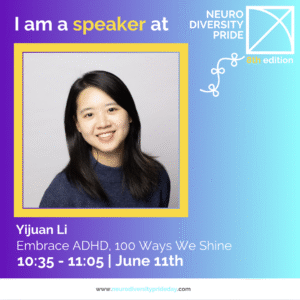 –
–
Yijuan Li: “Embrace ADHD, 100 Ways We Shine” with Yijuan Li and Guest Speaker Marc Goblot
We are excited to welcome Yijuan Li for an Academic Presentation on her early-stage exploratory research project titled “Embrace ADHD, 100 Ways We Shine.” Joining her as a guest speaker is Marc Goblot, who has contributed to the project as both a community advisor and an interviewee.
Abstract:
In this presentation, Yijuan will introduce an early-stage exploratory research project, “Embrace ADHD, 100 Ways We Shine”. It will include the framework and how it started, as well as practical details on conducting the interviews. The guest speaker, Marc Goblot, will present his experience as the community advisor and one of the interviewees, to give the audience a better idea. Welcome to join us!
This presentation is a valuable opportunity for those interested in neurodiversity, qualitative research methods, and inclusive community-based approaches. We warmly invite students, faculty, and the broader academic community to join this engaging and insightful session.
Yijuan Li: https://www.linkedin.com/in/jujusprofile/
Marc Goblot: https://www.linkedin.com/in/marcgoblot/
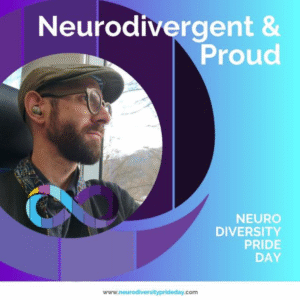
Daniel Koblischke
We are happy to introduce Daniel Koblischke, a visionairy thinker in the Neurodiversity space, talking about new and philosophical concepts, relating to “electronic drugs”, “neuro:rights” and the “political implications of neuro:ethics in the context of soft power”.
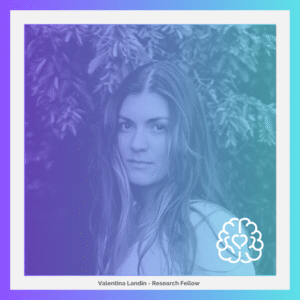
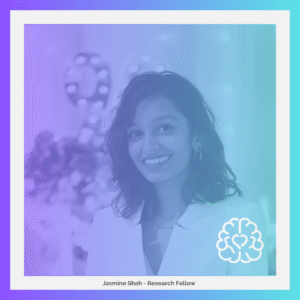
Valentina Landin and Jasmine Shah: Neurodiversity Research
We are delighted to invite you to an Academic Presentation by Valentina Landin and Jasmine Shah, who will share their collaborative research on redefining productivity through neuro-inclusive and nature-based methodologies.
Abstract:
This research critiques dominant productivity models by proposing neuro-inclusive alternatives designed for the needs of neurodiverse individuals. Challenging capitalist ideals of speed and efficiency, it reclaims attention, curiosity, and reflective practice through nature-based methodologies. Employing an ethnographic and participatory design framework, the research explores how methods such as walking, observation, photography, and reflective dialogue can build embodied, inclusive ways of working. The central intervention, Walk & Talk, is an immersive practice embedded in slowness, presence, and connection. Discussion and findings reveal how it reframes productivity as a relational, sensory, and reflective experience, offering a compassionate alternative that centres neurodiverse rhythms and promotes well-being through community and nature.
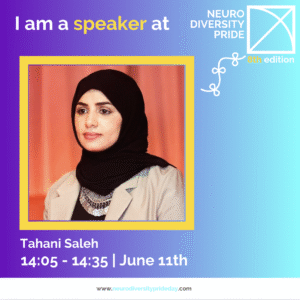
Tahani Saleh: Neurodiversity Research
Abstract:
Adults with Attention-Deficit/Hyperactivity Disorder (ADHD) often face challenges when using healthcare systems not designed with neurodivergent needs in mind. In the Netherlands, people with ADHD often report long delays in diagnosis, poor communication during consultations, and distressing sensory environments in waiting rooms. These difficulties are frequently caused by systemic misalignments between the healthcare setting and the cognitive and sensory features associated with ADHD, rather than just the condition itself.The present study aims to explore the healthcare journey of adults with ADHD in the Netherlands, focusing on the barriers they face and the strategies or interventions that support them. Using Photovoice, a method of participatory action research that empowers participants to capture their lived experiences through photography and narrative, the study will invite 5–6 adults with either formal or self-diagnosed ADHD to reflect on their experiences across three phases of care: help-seeking, waiting, and consultation.Grounded in person-environment fit theory and the neurodiversity paradigm, this study aims to challenge deficit perspectives, presenting not only the challenges but also the distinctive cognitive strengths that many people with ADHD deploy to manage health. Results will be interpreted in collaboration with participants and used to develop specific recommendations at each level to improve the accessibility, responsiveness, and inclusiveness of ADHD care within the Dutch healthcare system.
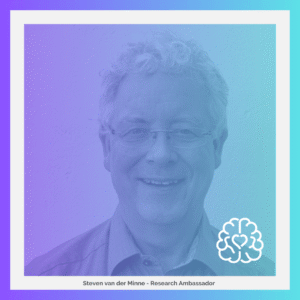
Steven van der Minne
We are pleased to welcome Steven van der Minne as the next speaker in our Academic Presentations series, where he will share his research and applied strategies for creating psychological safety as a foundation for true inclusion—particularly neuro-inclusion—in organizational settings.
Abstract:
For fully developing personal skills that make people thrive in groups, inclusion is a key condition. A key element to inclusion, also neuro-inclusion, is psychological safety.
Adopting, adapting, and improving psychological safety is easier said than done. In the absence of psychological safety in may organizations, people do not feel safe, will not open up and show their vulnerable side, so the situation is likely to remain as it is, may be inclusive in name, not in reality.
This is why I developed a few models to increase psychological safety in five steps, guidelines for organizations who start from the scratch, additional information representing the most common neurodivergent types and a few steps for guidance, and finally for organizations that really wish to monitor the progress, tips to include psychological safety, also within the neurodiversity into Key Performance Indicators.
I will not present the entire research, but I will show some examples for models and explain my motivation to dive into the neurodiverse dimension of psychological safety.
Steven van der Minne: https://www.linkedin.com/in/stevenvanderminne/edit/forms/next-action/after-connect-update-profile/
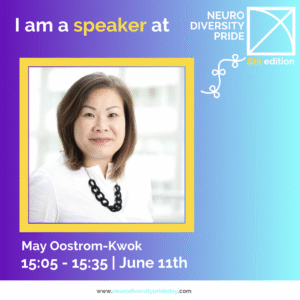
May Oostrom-Kwok: Neurodiversity Research with May Oostrom-Kwok
We are excited to announce an upcoming Academic Presentation by May Oostrom-Kwok, whose research explores how internal communication can empower line managers to build more neuroinclusive workplaces. As interest in neurodiversity at work grows, especially with companies like SAP and Microsoft reporting clear gains from inclusive practices, this topic is both timely and essential.
Abstract:
Neurodiversity at work is gaining more attention. With organisations like SAP and Microsoft reporting gains in productivity, quality, and innovation through neuroinclusive practices, companies are beginning to recognise the value of a neurodiverse workforce.
Given the critical role that line managers play in supporting neurodivergent individuals and the importance of communication in enabling inclusive organisations, this study aimed to explore how internal communication can support line managers in fostering a neuroinclusive workplace.
This qualitative study surveyed the experiences of people managers in a global, service-oriented company in the environmental services sector. Interviews were conducted with eight line managers who lead neurodiverse teams in the Netherlands and the UK. Findings revealed that while line managers employed some inclusive practices, they lacked formal training and guidance. Many felt unsupported at the corporate level and called for more structural investment, training, awareness, and open dialogue about neurodiversity.
The study highlights the importance of a dynamic approach to foster neuroinclusion, which includes awareness-building, dialogue facilitation, leadership and structural support, and education. Specifically, organisation-wide communication and leadership engagement are essential to create a truly neuroinclusive culture.
May Oostrom-Kwok: https://www.linkedin.com/in/may-kwok/
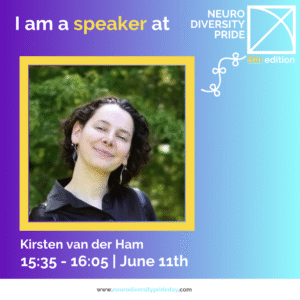
Kirsten van de Ham: Neurodiversity Research
This presentation explores how entrepreneurs with Autism Spectrum Condition leverage their strengths and manage challenges within entrepreneurship. Based on qualitative research involving ten Dutch entrepreneurs, it highlights themes such as systematic thinking, person-environment fit, and strategies for tailoring work environments to individual needs. The study contributes to a strengths-based perspective on neurodiversity in work and entrepreneurship.
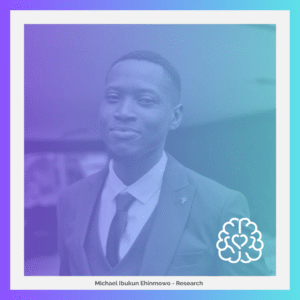
Michael Ehinmow
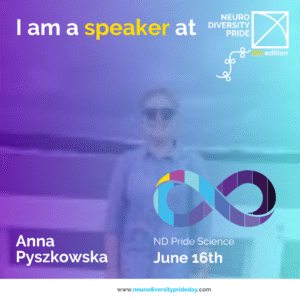
Anna Pyszkowska
Anna will share presentation: Inertia – theoretical framework exploration and scale development
Inertia is defined as difficulty in starting or stopping an activity, even if it seems simple, such as making breakfast or washing dishes. It is often associated with problems with executive functions, e.g., focus, planning, or decision-making. Previous research on inertia was qualitative or theoretical; no quantitative studies due to lack of a psychometric measurement aimed at this phenomenon. The current presentation focuses on the previous studies on inertia among autistic individuals and introduces a scale development of the Inertia Scale, based on results from both autistic, ADHD, and AuDHDers (N = 309) from Poland. The preliminary outcome showed that the Inertia Scale exhibits acceptable model fit (RMSEA = 0.05) and consists of four factors that underline the inertia framework: 1. Difficulty starting the activiy, 2. Powerlessness, 3. Physical blockage, and 4. Inertia breakers. Further qualitative results and research and clinical plans are also discussed.
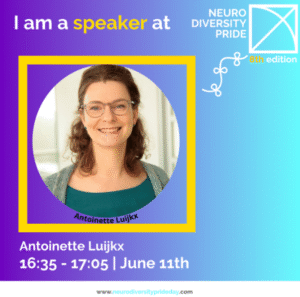
Antoinette Luijkx
We are pleased to welcome Antoinette Luijkx as our speaker for today’s event. Antoinette brings a wealth of knowledge and experience to the topic of sensory processing sensitivity (SPS), also known as highly sensitive person (HSP) trait.
Abstract:
In this presentation, Antoinette Luijkx explains the characteristics of sensory processing sensitivity, SPS (also known as HSP), differences in the brain compared to non-SPS, the burdens and strengths. We will discuss an overview of the research of the past 25 years on SPS and finally focus on the gaps yet to be researched.
Antoinette Luijkx: https://www.linkedin.com/in/antoinetteluijkx/
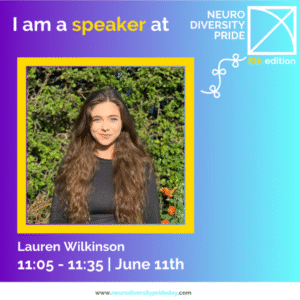
Lauren Wilkinson
We are honored to welcome Lauren Wilkinson as our speaker, offering groundbreaking insights into the intersection of neurodiversity and fibromyalgia.
Abstract:
Background: Neurodivergent conditions (e.g. autism and ADHD) share similarities with fibromyalgia including cognitive challenges (e.g. brain fog and executive dysfunction), sensory processing differences and comorbid mental and physical health conditions.
Neurodivergent individuals often struggle to explain their emotions and physical experiences; therefore, we predict this could extend to the explanation of their chronic pain, however this is currently ambiguous. Neurodiversity and fibromyalgia are managed by separate healthcare disciplines, so this relationship can either go undetected, or clinicians can lack the necessary understanding, skill or the capacity to deal with this appropriately which can lead to negatively impacting an individual’s quality of life.
Aims: This study aims to investigate the personal lived experiences of neurodivergent individuals with fibromyalgia and the interconnectedness of the conditions.
Keywords: Fibromyalgia, Neurodiversity, Autism, ADHD, Lived Experiences
Lauren Wilkinson: https://www.linkedin.com/in/lauren-wilkinson-722b62202/edit/forms/next-action/after-connect-update-profile/